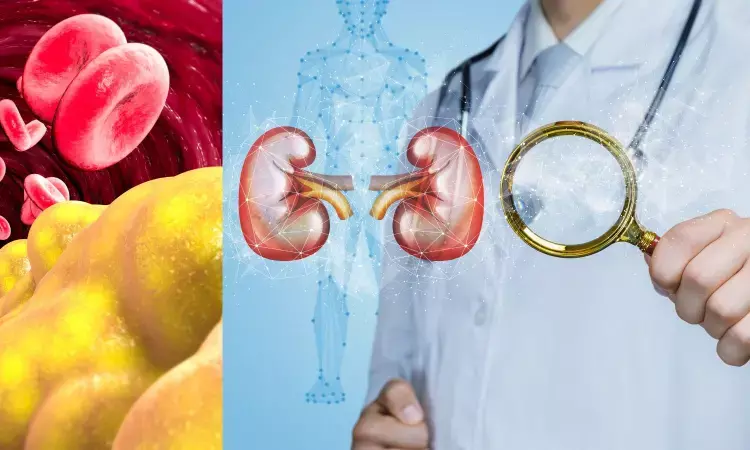- Home
- Medical news & Guidelines
- Anesthesiology
- Cardiology and CTVS
- Critical Care
- Dentistry
- Dermatology
- Diabetes and Endocrinology
- ENT
- Gastroenterology
- Medicine
- Nephrology
- Neurology
- Obstretics-Gynaecology
- Oncology
- Ophthalmology
- Orthopaedics
- Pediatrics-Neonatology
- Psychiatry
- Pulmonology
- Radiology
- Surgery
- Urology
- Laboratory Medicine
- Diet
- Nursing
- Paramedical
- Physiotherapy
- Health news
- Fact Check
- Bone Health Fact Check
- Brain Health Fact Check
- Cancer Related Fact Check
- Child Care Fact Check
- Dental and oral health fact check
- Diabetes and metabolic health fact check
- Diet and Nutrition Fact Check
- Eye and ENT Care Fact Check
- Fitness fact check
- Gut health fact check
- Heart health fact check
- Kidney health fact check
- Medical education fact check
- Men's health fact check
- Respiratory fact check
- Skin and hair care fact check
- Vaccine and Immunization fact check
- Women's health fact check
- AYUSH
- State News
- Andaman and Nicobar Islands
- Andhra Pradesh
- Arunachal Pradesh
- Assam
- Bihar
- Chandigarh
- Chattisgarh
- Dadra and Nagar Haveli
- Daman and Diu
- Delhi
- Goa
- Gujarat
- Haryana
- Himachal Pradesh
- Jammu & Kashmir
- Jharkhand
- Karnataka
- Kerala
- Ladakh
- Lakshadweep
- Madhya Pradesh
- Maharashtra
- Manipur
- Meghalaya
- Mizoram
- Nagaland
- Odisha
- Puducherry
- Punjab
- Rajasthan
- Sikkim
- Tamil Nadu
- Telangana
- Tripura
- Uttar Pradesh
- Uttrakhand
- West Bengal
- Medical Education
- Industry
Elevated triglyceride levels tied to compromised kidney function

A study published in the European Journal of Internal Medicine studied the effects of normal triglyceride, high triglyceride (150–500 mg/dL), and very high triglyceride (>500 mg/dL) levels on kidney function. According to the researchers of this study, based on findings, High triglyceride levels are associated with an increased risk of estimated glomerular filtration rate reduction and an increased risk of developing end-stage kidney disease or more than 30% GFR loss.
They addressed the importance of renal function monitoring in these patients.
In the present study, researchers investigated the role of hypertriglyceridemia on renal function decline and the development of end-stage kidney disease (ESKD) in a real-world clinical setting.
They used databases of 3 Italian Local Health Units for the study. They measured outcomes as a reduction in eGFR) ≥30%.
The key Results of the study are:
- The study included 45,000 subjects.
- Thirty-nine thousand nine hundred thirty-five had normal-TGs.
- Five thousand twenty-nine participants had high triglycerides or HTG.
- Thirty-six participants had very high TG.
- The baseline eGFR was 96.0 ± 66.4 mL/min.
- In normal-TG, HTG and vHTG subjects, the incidence of eGFR reduction was 27.1, 31.1 and 35.1 per 1000 person-years.
- In normal-TG and HTG/vHTG subjects, the incidence of ESKD was 0.7 and 0.9 per 1000 person-years, respectively.
- HTG subjects had a risk of eGFR reduction or ESKD occurrence by 48% compared to normal-TG subjects.
- Each 50 mg/dL increase in TG levels increased the risk of eGFR reduction and ESKD.
Concluding further, they explained, based on results from this real-world data, a moderate-to-severe increase in plasma TG levels causes deterioration of long-term kidney function.
They said the large sample size and length of follow-up allowed us to capture sufficient insights, which is the strength of our study.
They acknowledged Alfasigma (Italy) purchased the study report that is the basis for this article.
Further reading:
https://www.ejinme.com/article/S0953-6205(23)00059-6/fulltext
BDS, MDS in Periodontics and Implantology
Dr. Aditi Yadav is a BDS, MDS in Periodontics and Implantology. She has a clinical experience of 5 years as a laser dental surgeon. She also has a Diploma in clinical research and pharmacovigilance and is a Certified data scientist. She is currently working as a content developer in e-health services. Dr. Yadav has a keen interest in Medical Journalism and is actively involved in Medical Research writing.
Dr Kamal Kant Kohli-MBBS, DTCD- a chest specialist with more than 30 years of practice and a flair for writing clinical articles, Dr Kamal Kant Kohli joined Medical Dialogues as a Chief Editor of Medical News. Besides writing articles, as an editor, he proofreads and verifies all the medical content published on Medical Dialogues including those coming from journals, studies,medical conferences,guidelines etc. Email: drkohli@medicaldialogues.in. Contact no. 011-43720751


